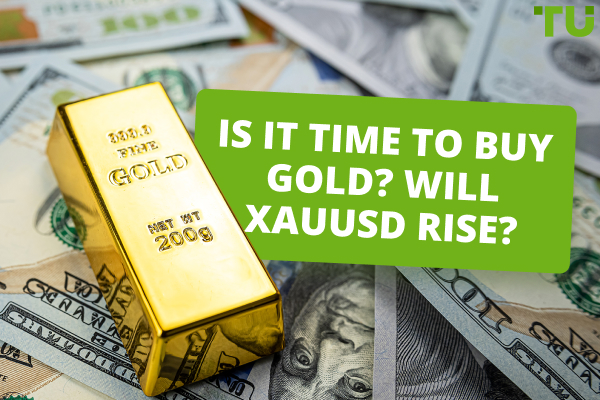Bitcoin Spot ETF Explained: What Investors Need to Know
Bitcoin Spot ETF is an investment fund that mirrors the direct price movements of Bitcoin. In contrast to futures-based ETFs, which derive their value from contracts predicting future Bitcoin prices, a spot Bitcoin ETF directly holds the physical cryptocurrency.
A Bitcoin Spot ETF is an investment vehicle that replicates the real-time price changes of Bitcoin. Unlike futures-based ETFs that derive value from contracts speculating on future Bitcoin prices, a spot Bitcoin ETF directly possesses the actual cryptocurrency.
The first exchange-traded funds (ETFs) to track bitcoin were approved by the US securities authority on Wednesday, January 10, 2024, marking a turning point for both the world's largest cryptocurrency and the cryptocurrency market as a whole.
The approval from the commission allowed sponsors of ten exchange-traded funds (ETFs) such as Invesco, Grayscale, BlackRock, Fidelity, and Ark Invest to start trading the funds as soon as possible.
-
What is a Bitcoin spot ETF?
A spot Bitcoin ETF is an investment option allowing ordinary investors to access Bitcoin price movements through regular brokerage accounts. Unlike Bitcoin futures ETFs, it directly invests in physical bitcoins instead of using derivative contracts.
-
How does a spot ETF differ from a futures-based ETF?
In contrast to a futures-based ETF, a spot ETF possesses real Bitcoins.
-
What are the drawbacks of Bitcoin spot ETFs?
Bitcoin spot ETFs may incur higher expenses compared to other funds, stemming from the costs linked to securing and trading cryptocurrencies.
-
Have the Bitcoin spot ETFs been granted approval?
In January 2024, the SEC approved the first 11 Bitcoin spot ETFs after rejecting multiple applications from cryptocurrency asset managers.
What is a Bitcoin ETF?
A Bitcoin ExchangeTraded Fund (ETF) is a financial product that tracks the price of Bitcoin, allowing investors to gain exposure to the cryptocurrency without directly owning or storing it. The ETF trades on traditional stock exchanges, providing a convenient and regulated way for investors to invest in Bitcoin as part of their broader investment portfolio.
Investors who trade exchanged funds (ETFs) on stock exchanges have the opportunity to purchase or sell shares at market prices, as well as increased exposure to a diverse range of asset classes. Rather than managing numerous equities, an investor might acquire shares of a single ETF that is allocated among those companies.
The first exchange-traded funds (ETFs) to track Bitcoin were approved by the US securities authority on Wednesday, January 10, 2024, marking a turning point for both the world's largest cryptocurrency and the cryptocurrency market as a whole.
The approval from the commission allowed sponsors of ten exchange-traded funds (ETFs) such as Invesco, Grayscale, BlackRock, Fidelity, and Ark Invest to start trading the funds as soon as possible.
Where can I buy Bitcoin Spot ETFs?
How Does Bitcoin ETF Work?
A Bitcoin Exchange-Traded Fund (ETF) functions by exposing investors to fluctuations in Bitcoin's price without forcing them to hold or handle the cryptocurrency directly.
Here's a simplified explanation of how a Bitcoin ETF typically works:
Creation of the ETF:
An asset management company or financial institution creates the Bitcoin ETF. They design the fund to track the price of Bitcoin, usually by holding actual Bitcoin or derivative products tied to its value.
Authorized Participants (APs):
These are entities, often large financial institutions or market makers, authorized to create or redeem shares of the ETF. They are essential to preserving the equilibrium between the share price of the ETF and the underlying Bitcoin's net asset value (NAV).
Acquisition of Bitcoin:
The ETF issuer acquires and holds a certain amount of Bitcoin or Bitcoin-related assets, forming the fund's underlying assets. The ETF's performance is tied to the price movements of these assets.
Creation and Redemption:
When investors want to buy shares of the Bitcoin ETF, authorized participants create new shares by delivering the equivalent amount of Bitcoin to the ETF. Conversely, when investors want to redeem their shares, the authorized participants take back ETF shares and receive the equivalent value in Bitcoin.
Trading on Stock Exchanges:
The ETF is listed on traditional stock exchanges, allowing investors to buy and sell shares through their brokerage accounts, just like they would with any other stock.
Market Price vs. NAV:
The net asset value (NAV), which is calculated by dividing the total value of the underlying Bitcoin assets by the total number of outstanding shares, may not match the market price of the ETF shares.
Arbitrage Opportunities:
To maintain equality between the market price and NAV of the ETF, authorized participants may partake in arbitrage. If Bitcoin trades at a premium, the ETF can create a new share by delivering it and selling it at the higher market price. They can purchase ETF shares, exchange them for Bitcoin, and then sell the cryptocurrency at market value if it trades at a discount.
Typically, a Bitcoin ETF works by allowing investors to buy and sell shares representing ownership in a fund that holds Bitcoin. The actions of permitted participants help maintain the ETF's market price close to the value of its underlying assets, providing a regulated and accessible way for investors to gain exposure to Bitcoin.
Benefits of Bitcoin Investing through ETFs
With the introduction of Bitcoin Exchange-Traded Funds (ETFs), major issues related to direct ownership of the cryptocurrency will be addressed, potentially making Bitcoin safer and more accessible for traditional investors.
Affordability:
Without having to buy and keep the cryptocurrency themselves, investors can be exposed to changes in the price of Bitcoin using Bitcoin ETFs. This removes the need to keep track of wallets, manage private keys, and comprehend the intricate technical details of storing cryptocurrencies. Since ETFs are listed on conventional stock exchanges, a wider range of investors can purchase and sell shares using well-known brokerage accounts.
Risk Mitigation:
Direct Bitcoin ownership entails security risks, including the potential for fraud, hacking, and private key loss. Investors assign the fund issuer the duty of securely storing and managing their Bitcoin by making an investment in a licenced ETF.
Regulatory monitoring:
As an extra measure of investor protection, Bitcoin ETFs are subject to regulatory examination and monitoring. Regulatory approval procedures entail careful reviews of security protocols, fund structures, and adherence to financial rules.
Market Efficiency and Liquidity:
ETFs trade on reputable stock exchanges, which improves market efficiency and liquidity. In comparison to exchanges for cryptocurrencies that are less liquid, this may lead to less price volatility.
Benefits of Diversification:
By holding a basket of Bitcoin or comparable assets, Bitcoin ETFs may provide diversified exposure to the cryptocurrency market. Incorporating Bitcoin into a diverse investment portfolio can potentially mitigate the impact of individual price volatility and improve risk-adjusted returns for investors.
Buying Bitcoin Futures ETFs: A Guide to Investing
There are several Bitcoin futures ETFs that trade on exchanges such as the New York Stock Exchange (ARCA) and Nasdaq, marking a significant evolution in the cryptocurrency investment niche. These ETFs provide investors with exposure to Bitcoin price movements through futures contracts, offering unique advantages and considerations compared to traditional spot ETFs. This article will help you invest in Bitcoin Futures ETFs by guiding you through the process and giving you information about all of the choices available on reputable exchanges.
Understanding Bitcoin Futures ETFs:
Bitcoin Futures ETFs are financial instruments that track the price of Bitcoin futures contracts rather than the spot price of the cryptocurrency. Investing in these ETFs allows you to capitalize on the potential gains or losses in the futures market.
Exploring a Range of Bitcoin Futures ETF Options:
Investors have a variety of Bitcoin Futures ETFs to choose from, all available on major exchanges like the New York Stock Exchange (ARCA) and Nasdaq. Among the noteworthy options are:
-
Purpose Bitcoin ETF (BTCC.TO): Using cold storage custody, it provides easy exposure to Bitcoin without requiring direct ownership.
-
CI Galaxy Bitcoin ETF (BTCX.B): Offers cold storage options for affordable exposure to Bitcoin.
-
Evolve Bitcoin ETF (EBIT.TO): Provides investors with a standard brokerage account as a handy means of investing in Bitcoin.
-
Valkyrie Bitcoin Strategy ETF (BTF): Offers special active management techniques to profit from fluctuations in the price of Bitcoin.
-
ProShares Short Bitcoin ETF (BITI): Provides investors looking to profit on falls with inverse exposure to Bitcoin's price swings.
-
ProShares Bitcoin Strategy ETF (BITO): Offers investors liquidity-maintaining exposure to Bitcoin through futures contracts.
-
XBTF VanEck Bitcoin Strategy ETF: Enables diversified exposure to firms involved in blockchain and Bitcoin, thereby opening up growth prospects.
-
Bitcoin Strategy & Blockchain Global X ETF (BITS): Provides investors looking for alternative cryptocurrency investment opportunities with exposure to both Bitcoin and blockchain-related companies.
Opening a Brokerage Account:
You must open a brokerage account with a respectable financial institution in order to invest in Bitcoin Futures ETFs. Make sure the brokerage of your choice has the particular ETFs that spark your interest.
Research and Due Diligence:
Examine the selected Bitcoin Futures ETFs in depth before making any investment decisions. Take into account elements like the fund's expense ratios, management approach, past performance, and any special benefits it might provide.
Placing Trades:
You may use the trading interface to place trades on Bitcoin Futures ETFs after setting up and funding your brokerage account. Decide how many shares you want to buy, then check your order before completing it.
Keeping an Eye on Your Investment:
Pay particular attention to how your Bitcoin Futures ETF investment is doing. It is imperative to regularly watch price fluctuations in the futures market to make well-informed decisions regarding holding, selling, or modifying your position.
Risk Management:
Recognise the possibility of both gains and losses as well as market volatility when investing in Bitcoin Futures ETFs. To safeguard your investment, think about putting risk management techniques into practice.
Remaining educated:
Keep up with changes in regulations, the bitcoin market, and any updates pertaining to the particular Bitcoin Futures ETFs in your portfolio. The state of the market could change and affect how well your investment performs.
Comparative Table of Bitcoin Spot ETFs and Other Types of Bitcoin ETFs
This table highlights the key distinctions between Bitcoin Spot ETFs, Bitcoin Futures ETFs, and Bitcoin Strategy ETFs, providing investors with a comparative overview to assist in making informed investment decisions based on their preferences and risk tolerance.
| Aspect | Bitcoin Spot ETFs | Bitcoin Futures ETFs | Bitcoin Strategy ETFs |
|---|---|---|---|
|
Investment Approach |
Directly tracks the spot price of Bitcoin. |
Tracks the price movements of Bitcoin futures contracts. |
Utilises various strategies, including futures or actively managed approaches. |
|
Underlying Assets |
Holds physical Bitcoin as the primary asset. |
Primarily invests in Bitcoin futures contracts. |
May hold a mix of Bitcoin futures, cash, and other assets. |
|
Regulatory Framework |
Subject to regulatory approval, with a focus on the custody and security of physical Bitcoin. |
Requires approval and oversight, with an emphasis on risk management and compliance. |
Regulated, with considerations for various investment strategies and risk management. |
|
Liquidity and Accessibility |
Offers direct exposure to the spot market with potential for high liquidity. |
Trading may occur on major exchanges, providing liquidity, but it may differ from spot market liquidity. |
Trading on exchanges enhances liquidity, making it accessible to a broader investor base. |
|
Risk and Return Profiles |
Generally follows the price movements of Bitcoin, with risk tied to cryptocurrency market volatility. |
Exposure to futures introduces additional complexities and risks, potentially leading to higher returns or losses. |
Various strategies may impact risk and return, including leveraging, hedging, or active management. |
|
Market Integration |
Provides a bridge between the traditional financial market and the cryptocurrency space. |
Enhances integration with traditional markets, but with potential deviations from spot market dynamics. |
Facilitates integration by offering diversified strategies, contributing to a more mature market. |
|
Examples of ETFs: |
Grayscale Bitcoin Trust (GBTC) and Purpose Bitcoin ETF (BTCC). |
ProShares Bitcoin Strategy ETF (BITO) and WisdomTree Bitcoin Futures Strategy Fund (BTCF). |
VanEck Bitcoin Strategy ETF (XBTF) and First Trust SkyBridge Bitcoin ETF Trust (SKYB). |
Perspectives from leading analysts regarding the future of Bitcoin Spot ETFs
Arnott, a researcher in asset allocation evolution, contends that Bitcoin doesn't fit the traditional definition of an asset or currency. Instead, he likens it to speculative vehicles such as art and fine wine, emphasizing the importance of investors comprehending the speculative nature of such investments.
According to analysts at Standard Chartered, the influx of $50 billion to $100 billion into Bitcoin ETFs in the current year has the potential to propel the cryptocurrency's price to an estimated $100,000. This is also in sync with what Chris Giancarlo, the original creator of the US cryptocurrency derivatives market and a former chairman of the Commodity Futures Trading Commission (CFTC), predicted: that "spot Bitcoin ETFs could be worth US$100 billion by next year."
Sandy Kaul, Head of Digital Assets and Industry Advisory Services at Franklin Templeton, reported that investors seeking novelty amid uncertainties about real estate, bonds, and stocks shouldn't pose excessive risk by allocating 1% or 2% of their portfolio to spot Bitcoin ETFs.
She added that one of the cryptocurrency's most well-known features is its restricted supply, with all 21 million projected to be mined by 2140. This is similar to gold's inflation resistance, which supporters of the coin have emphasized.
According to a report by Ruslan Lienkha, Chief of Markets at the fintech platform YouHodler, investors are reluctant to devote a significant amount of their portfolio to cryptocurrencies, despite the market's rising curiosity. But even a small contribution from institutional investors might make a big difference in the total market value of cryptocurrencies.
Trading volume
It is anticipated that the approval of the Spot Bitcoin ETF will bring more accessibility and liquidity to the Bitcoin market. More price stability and more interest from institutional and retail investors looking to gain exposure to digital assets could result from this.
Global Interest
The approval of the Spot Bitcoin ETF has international implications in addition to being a local phenomenon. It could have an impact on the regulatory policies of other nations regarding cryptocurrencies and may lead to the release of comparable goods on international markets, resulting in the development of a more robust and integrated global cryptocurrency ecosystem.
Conclusion
In the bitcoin ETF market, the approval opens the door for additional players and crypto products. Future prospects for bitcoin investment products appear bright, as seen by the way the sector is changing due to changes in regulations and technology.
Presumably, spot ether will be available in the upcoming batch of ETF applications. The SEC will be reviewing the applications that major ETF issuers and sponsors have submitted for ether ETFs in recent months. Over the next few years, it is likely that ETFs with a wide range of cryptocurrency asset underlyings will be introduced if those applications are accepted.
It's also conceivable that other regulators will follow suit after the SEC approves bitcoin ETFs.
Glossary for novice traders
-
1
Bitcoin
Bitcoin is a decentralized digital cryptocurrency that was created in 2009 by an anonymous individual or group using the pseudonym Satoshi Nakamoto. It operates on a technology called blockchain, which is a distributed ledger that records all transactions across a network of computers.
-
2
Broker
A broker is a legal entity or individual that performs as an intermediary when making trades in the financial markets. Private investors cannot trade without a broker, since only brokers can execute trades on the exchanges.
-
3
Investor
An investor is an individual, who invests money in an asset with the expectation that its value would appreciate in the future. The asset can be anything, including a bond, debenture, mutual fund, equity, gold, silver, exchange-traded funds (ETFs), and real-estate property.
-
4
Cryptocurrency
Cryptocurrency is a type of digital or virtual currency that relies on cryptography for security. Unlike traditional currencies issued by governments (fiat currencies), cryptocurrencies operate on decentralized networks, typically based on blockchain technology.
-
5
Trading
Trading involves the act of buying and selling financial assets like stocks, currencies, or commodities with the intention of profiting from market price fluctuations. Traders employ various strategies, analysis techniques, and risk management practices to make informed decisions and optimize their chances of success in the financial markets.
Team that worked on the article
Victor has contributed insightful articles to reputable platforms like DecodeFX and FXScouts, showcasing his expertise in the field of finance, Forex and investing. Currently pursuing a masters program in business administration, Victor combines academic rigor with practical industry insights.
Dr. BJ Johnson is a PhD in English Language and an editor with over 15 years of experience. He earned his degree in English Language in the U.S and the UK. In 2020, Dr. Johnson joined the Traders Union team. Since then, he has created over 100 exclusive articles and edited over 300 articles of other authors.
Tobi Opeyemi Amure is an editor and expert writer with over 7 years of experience. In 2023, Tobi joined the Traders Union team as an editor and fact checker, making sure to deliver trustworthy and reliable content. The topics he covers include trading signals, cryptocurrencies, Forex brokers, stock brokers, expert advisors, binary options.
Tobi Opeyemi Amure motto: The journey of a thousand miles begins with a single step.











